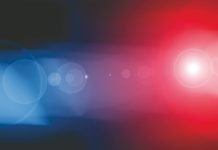
Alliance for Substance Abuse Progress leaders are planning to look at how they can bolster the community-wide response to substance use disorder over the next year amid a worsening drug overdose crisis that has claimed 101 lives in Bartholomew County since 2017, including at least 30 last year.
Much of the focus for 2021 involves addressing gaps in Bartholomew County’s ability to help people overcome substance use disorder and evaluating the capacity and need for local inpatient treatment options, ASAP officials said.
Among the gaps highlighted by ASAP officials were a potential inpatient medically supervised detox program in Bartholomew County, more recovery housing for women and the possibility of additional ASAP-run recovery homes, said ASAP Executive Director Doug Leonard.
Inpatient medically supervised detox programs are for individuals who are dangerously intoxicated and cannot immediately start a treatment program, according to the Substance Abuse and Mental Health Services Administration.
[sc:text-divider text-divider-title=”Story continues below gallery” ]
These programs are similar in some ways to Columbus Regional Health’s Treatment and Support Center, or TASC, as they often use medication to help people withdraw from alcohol or drugs.
The main difference is that TASC is an outpatient treatment program that provides medication-assisted treatment to reduce withdrawal symptoms and cravings so therapists and other medical professionals can help patients find the root causes that may have prompted them to start abusing drugs or alcohol.
The inpatient detox program ASAP officials hope to see in Bartholomew County would be for people who are “so intoxicated that TASC can’t handle them,” Leonard said. The goal is to help these individuals get the drugs or alcohol out of their system so they can start a program like TASC or others in the community.
Currently, people who need these programs are transported out of county to undergo inpatient detox, Leonard said.
The details of how or when such a program would operate locally are not yet known.
“One gap that we’ve talked about is we don’t have a medically supervised detox program here in town for people that are acutely and dangerously intoxicated until they can get that out of their system and be able to start a treatment program,” he said. “We transport people to other counties. …That would be a big plus in town to have that available.”
Launched in 2017, ASAP is a community-wide response to address substance use disorder, including the opioid crisis, in Bartholomew County. ASAP formed through a partnership of Columbus and Bartholomew County governments and Columbus Regional Health.
In January 2020, ASAP officials identified a lack of available recovery housing as one of the most significant gaps in the county-wide effort to help people overcome substance use disorder.
Since then, several recovery and sober living transitional homes have opened in Bartholomew County, though many were delayed or limited in capacity due to the pandemic.
The Fresh Start Recovery Center, an addiction recovery center for pregnant women and new mothers built inside a renovated post office building in downtown Columbus, opened in early October after a six-month delay due related to the pandemic.
ASAP opened a recovery house in the Lincoln-Central Neighborhood in September, but initially housed up to four residents to reduce the chances of spreading COVID-19. As of Dec. 21, there were six residents.
Additional homes have been opened by Centerstone and a Chain Breaker Ministries, among other organizations.
Before last year, the closest recovery housing for Bartholomew County women was in Monroe County, and the closest recovery housing for men was in Jennings County, ASAP officials said.
But more may be needed, Leonard said.
“We’re looking at whether we will need a second house or more, and we’re trying to support all the others that have come to town so that there will be more and more available,” Leonard said. “We don’t need to operate them all. They all come with different styles and flavors and and that’s great for people who need them. They have a choice of what will fit best with their particular recovery.”
The push for recovery housing and expanded treatment options in the community comes as as local officials attempt to counter a rise in drug overdose deaths in the community and a surge in relapses, mirroring a trend seen nationwide.
Data for all of 2020 is not yet available, but last week the Centers for Disease Control and Prevention reported more than 81,000 drug overdose deaths in the 12 months ending in May, making it the highest number ever recorded in a one-year period, The Associated Press reported.
Locally, a total of 30 people in Bartholomew County died from drug overdoses from Jan. 1 to Dec. 18, compared to 24 all of last year and matching 2017 for the highest tally in three years, according to the Bartholomew County Coroner’s Office.
While the increase in drug overdose deaths started in 2019, fatal drug overdoses "appear to have accelerated during the COVID-19 pandemic," with the largest increase recorded from March to May as states and communities implemented measures to to limit the spread of COVID-19, according to the CDC.
The pandemic has limited access to several local outreach programs, in-person meetings and treatment, altering the operations and efforts of organizations that serve as a lifeline for those in recovery, including the ASAP Hub.
Earlier this year, the spread of the virus caused many in-person recovery meetings in the community to be postponed or canceled, and some local homeless shelters and treatment facilities were temporarily closed or had restricted access, which many have made it harder for people to continue their treatment.
The ASAP Hub, located in the Doug Otto Center at 1531 13th St., has been closed to walk-in clients since late November due to the pandemic but remains open for recovery meetings.
The Hub was previously closed to walk-in clients for several weeks during the spring.
“One of the biggest enemies to recovery is just stressors and chaos and big changes like we’ve seen in 2020,” said Matthew Neville, director of operations at ASAP. “Having the meetings still going on is one of the things that we’ve learned in the first shut down that was vitally important. Now that we have kind of learned more about COVID, we are able to safely keep the Hub open (for recovery meetings). We want to be able to support those recovery communities the best that we can."
[sc:pullout-title pullout-title=”Where to learn more” ][sc:pullout-text-begin]
To learn more about the Alliance for Substance Abuse Progress, visit https://www.asapbc.org/.
[sc:pullout-text-end]




